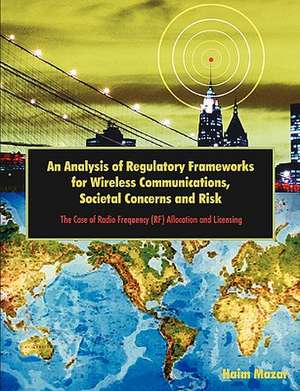An Analysis of Regulatory Frameworks for Wireless Communications, Societal Concerns and Risk: The Case of Radio Frequency (RF) Allocation and Licensi
Autor Haim Mazaren Limba Engleză Paperback – 14 aug 2009
Preț: 234.98 lei
Nou
Puncte Express: 352
Preț estimativ în valută:
44.97€ • 48.83$ • 37.77£
44.97€ • 48.83$ • 37.77£
Carte tipărită la comandă
Livrare economică 22 aprilie-06 mai
Preluare comenzi: 021 569.72.76
Specificații
ISBN-13: 9781599427102
ISBN-10: 1599427109
Pagini: 330
Dimensiuni: 189 x 246 x 18 mm
Greutate: 0.59 kg
Editura: Dissertation.Com.
ISBN-10: 1599427109
Pagini: 330
Dimensiuni: 189 x 246 x 18 mm
Greutate: 0.59 kg
Editura: Dissertation.Com.












